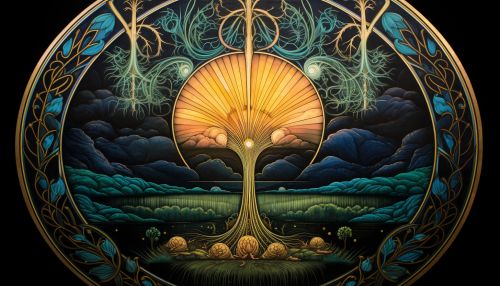Monadology
Introduction
Monadology is a philosophical concept developed by the 17th-century philosopher Leibniz. It posits that the universe is composed of simple substances known as monads. These monads are indivisible, non-extendable entities that do not interact with each other but rather, each monad reflects the entire universe in a pre-established harmony.


Concept of Monad
In Leibniz's philosophy, a monad is a simple substance. Unlike physical objects, which are composite and can be divided into parts, monads are indivisible. They are the ultimate elements of the universe, akin to what might be considered the fundamental particles in quantum physics. However, unlike physical particles, monads are not material or physical. They are metaphysical entities, devoid of shape, size, and divisibility.
Pre-established Harmony
Leibniz's monadology also includes the concept of pre-established harmony. This is the idea that each monad independently follows a set of "laws" programmed into it by God at the beginning of time. These laws govern the evolution of the monad's internal state. Despite the fact that monads do not interact with each other, the pre-established harmony ensures that the changes in different monads are coordinated with each other, creating the illusion of causal interaction.
Perception and Appetition
According to Leibniz, each monad has the capacity for perception and appetition. Perception, in this context, does not imply consciousness or awareness as in human perception. Instead, it refers to the internal state of a monad, which represents the entire universe from its perspective. Appetition, on the other hand, is the principle that drives the changes in the internal state of a monad. It is the future state towards which the monad is "striving".
Monad Hierarchy
Leibniz also proposed a hierarchy of monads. At the bottom of this hierarchy are the "bare" monads, which have only the most rudimentary form of perception. Above them are the "souls", which have memory in addition to perception. At the top of the hierarchy are the "spirits" or "rational souls", which have the ability to understand and reason. This includes human minds and God, who is the supreme monad.
Criticisms and Interpretations
Monadology has been subject to various criticisms and interpretations since its inception. Some philosophers have criticized it for its apparent denial of the reality of physical interactions. Others have interpreted it as a form of panpsychism, the view that all parts of the universe have some form of consciousness or mind.
Legacy and Influence
Despite these criticisms, monadology has had a significant influence on philosophy. It has inspired various forms of idealism and has been used to argue against materialism. It has also influenced the development of modern logic and philosophy of mind.
